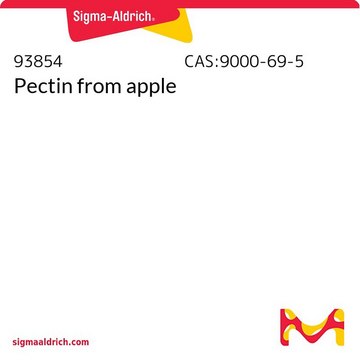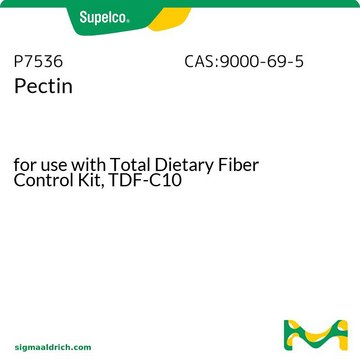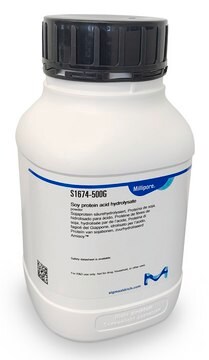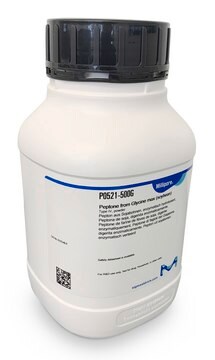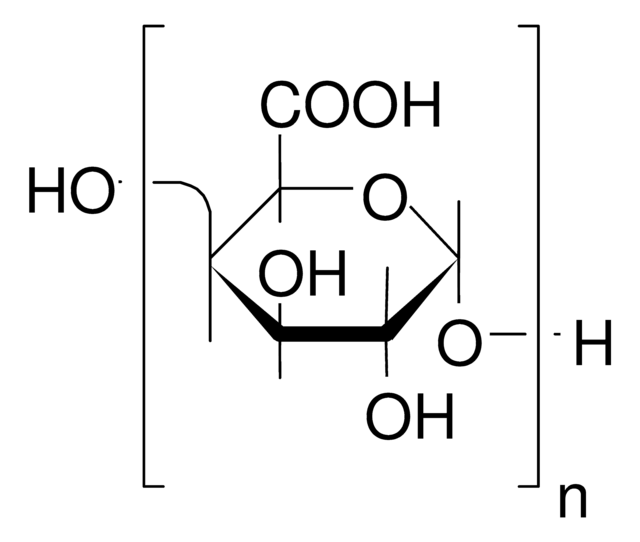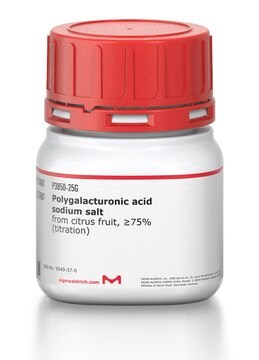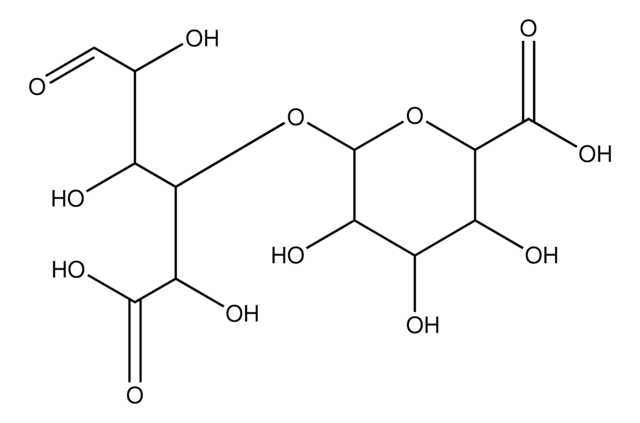P9135
Pectin from citrus peel
Galacturonic acid ≥74.0 % (dried basis)
Sinónimos:
Poly-D-galacturonic acid methyl ester
About This Item
Productos recomendados
origen biológico
citrus (peels)
formulario
powder
composición
Galacturonic acid, ≥74.0% (dried basis)
impurezas
≤10% Moisture
color
light brown
temp. de almacenamiento
room temp
¿Está buscando productos similares? Visita Guía de comparación de productos
Descripción general
Aplicación
- in the comparative study of physicochemical, rheological and gelling properties of pectin among different extraction method
- in starch suspension for measuring in vitro starch digestibility
- to measure pectinase activity
- in the production of pectinase on solid medium
Acciones bioquímicas o fisiológicas
Otras notas
Código de clase de almacenamiento
11 - Combustible Solids
Clase de riesgo para el agua (WGK)
nwg
Punto de inflamabilidad (°F)
Not applicable
Punto de inflamabilidad (°C)
Not applicable
Equipo de protección personal
Eyeshields, Gloves, type N95 (US)
Certificados de análisis (COA)
Busque Certificados de análisis (COA) introduciendo el número de lote del producto. Los números de lote se encuentran en la etiqueta del producto después de las palabras «Lot» o «Batch»
¿Ya tiene este producto?
Encuentre la documentación para los productos que ha comprado recientemente en la Biblioteca de documentos.
Los clientes también vieron
Nuestro equipo de científicos tiene experiencia en todas las áreas de investigación: Ciencias de la vida, Ciencia de los materiales, Síntesis química, Cromatografía, Analítica y muchas otras.
Póngase en contacto con el Servicio técnico